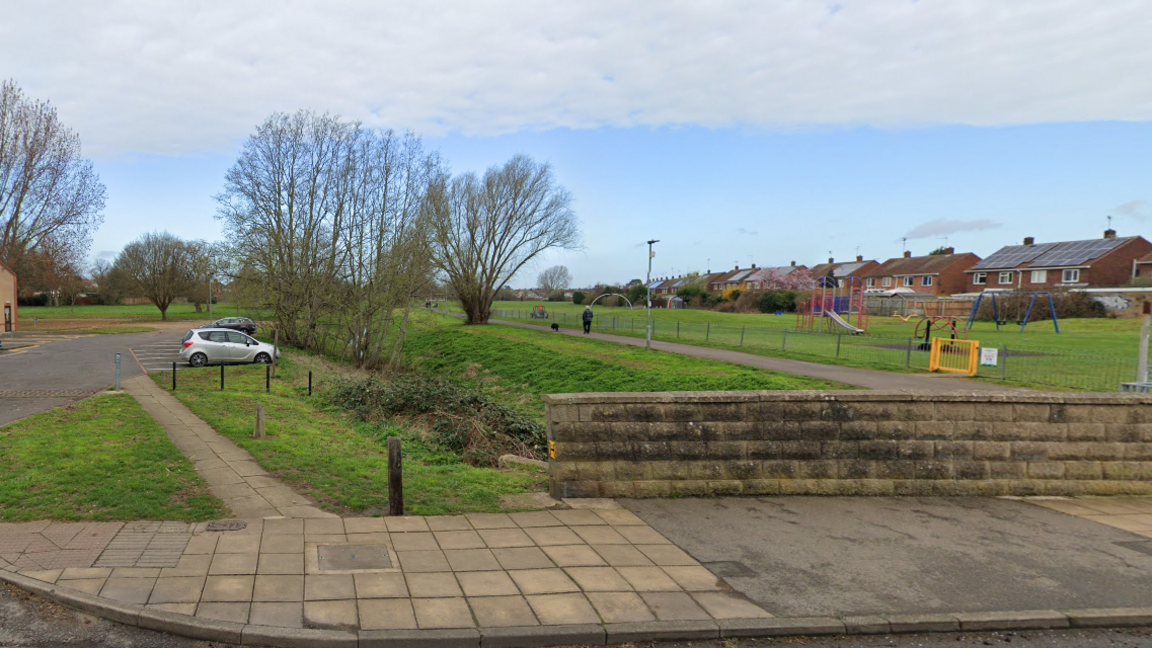Volunteers work to reopen land that inspired poet
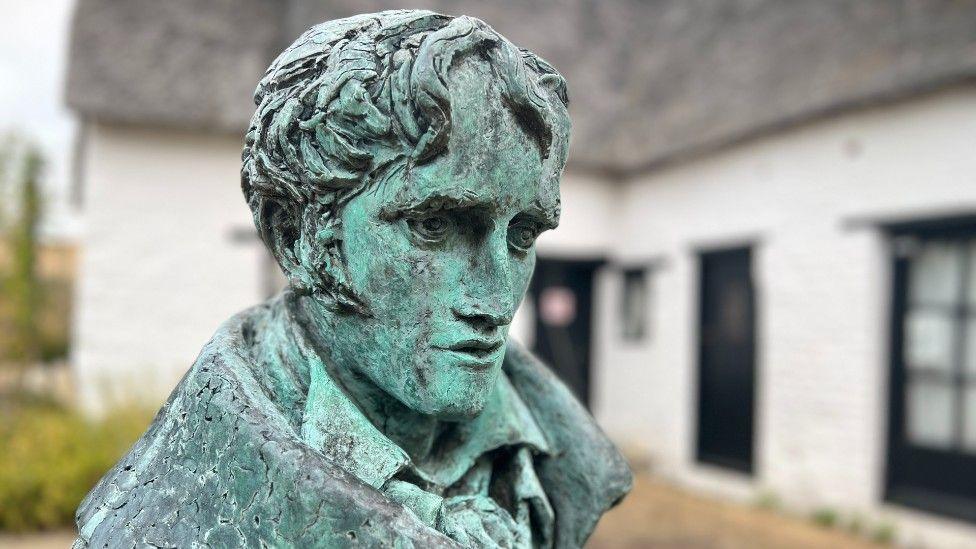
The countryside project is inspired by the poetry of John Clare
- Published
A group of volunteers will honour one of the nation's most beloved nature poets with a project to reclaim habitats and open up corridors of land.
The nature 19th Century poet John Clare grew up in Helpston, Cambridgeshire, which at the time was part of Northamptonshire, and wrote about the loss of the scenery he loved as a child.
The John Clare Countryside Project, led by the Langdyke Countryside Trust, will connect Peterborough to Stamford in Lincolnshire, through green corridors of farmland.
Richard Astle, chair of the trust, said: "It would be great to create some of John Clare's lost habitats in his honour and in his memory."
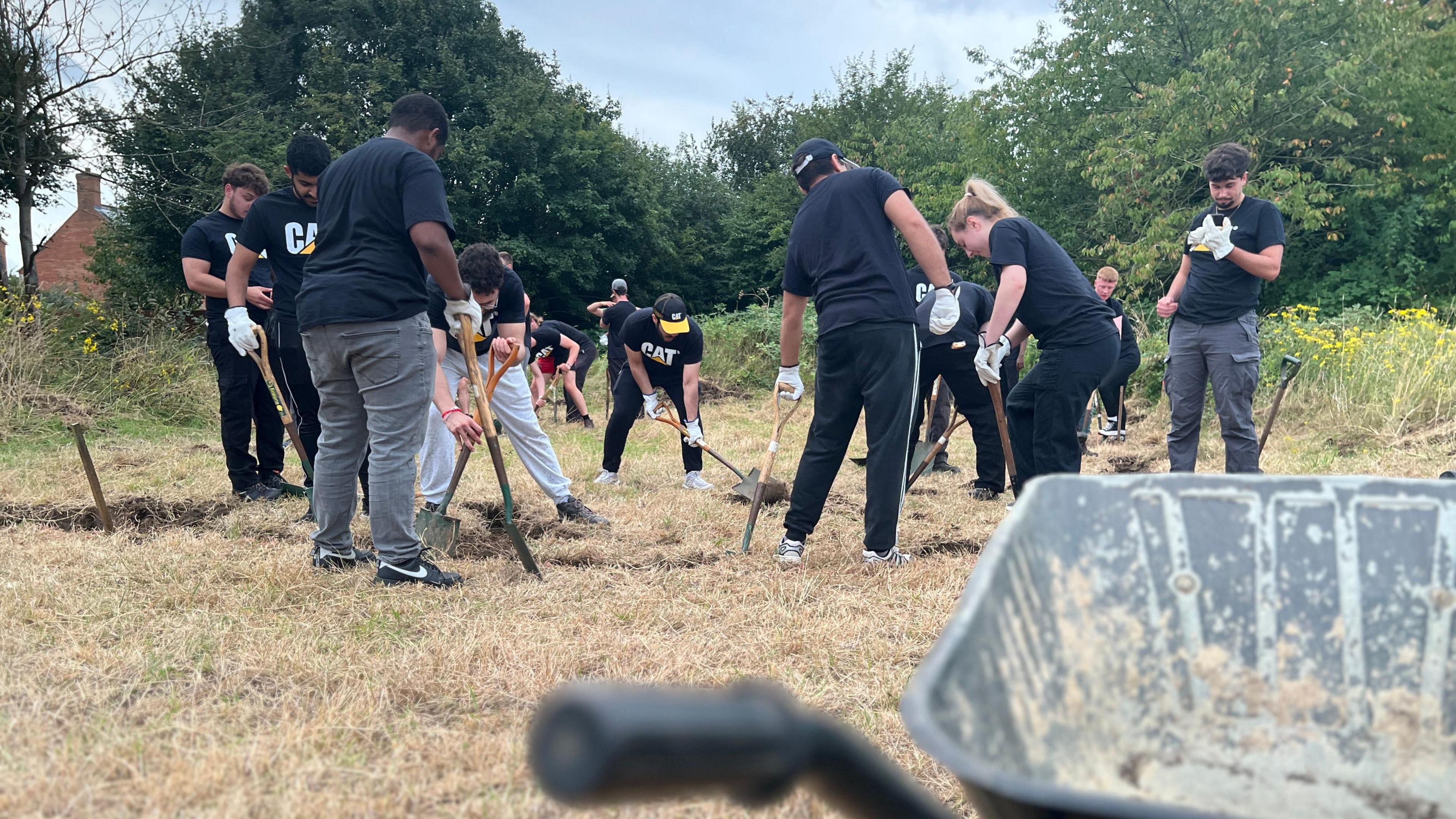
Volunteers hope to be able to "double nature" - where farming and nature co-exist - in 21 parishes within the John Clare Countryside area
The John Clare Countryside is an area of 30,000 acres (121 sq km) straddling Peterborough and the border with Lincolnshire.
The project aims to "double nature, external" in 21 parishes in the area, bringing back lost habitats - including wetlands and woodlands - and seeing farmland and nature thrive side by side.
At Tween Town, a five-acre (20,200m) site near Peterborough, work has begun on a tree nursery and wildflower meadow.
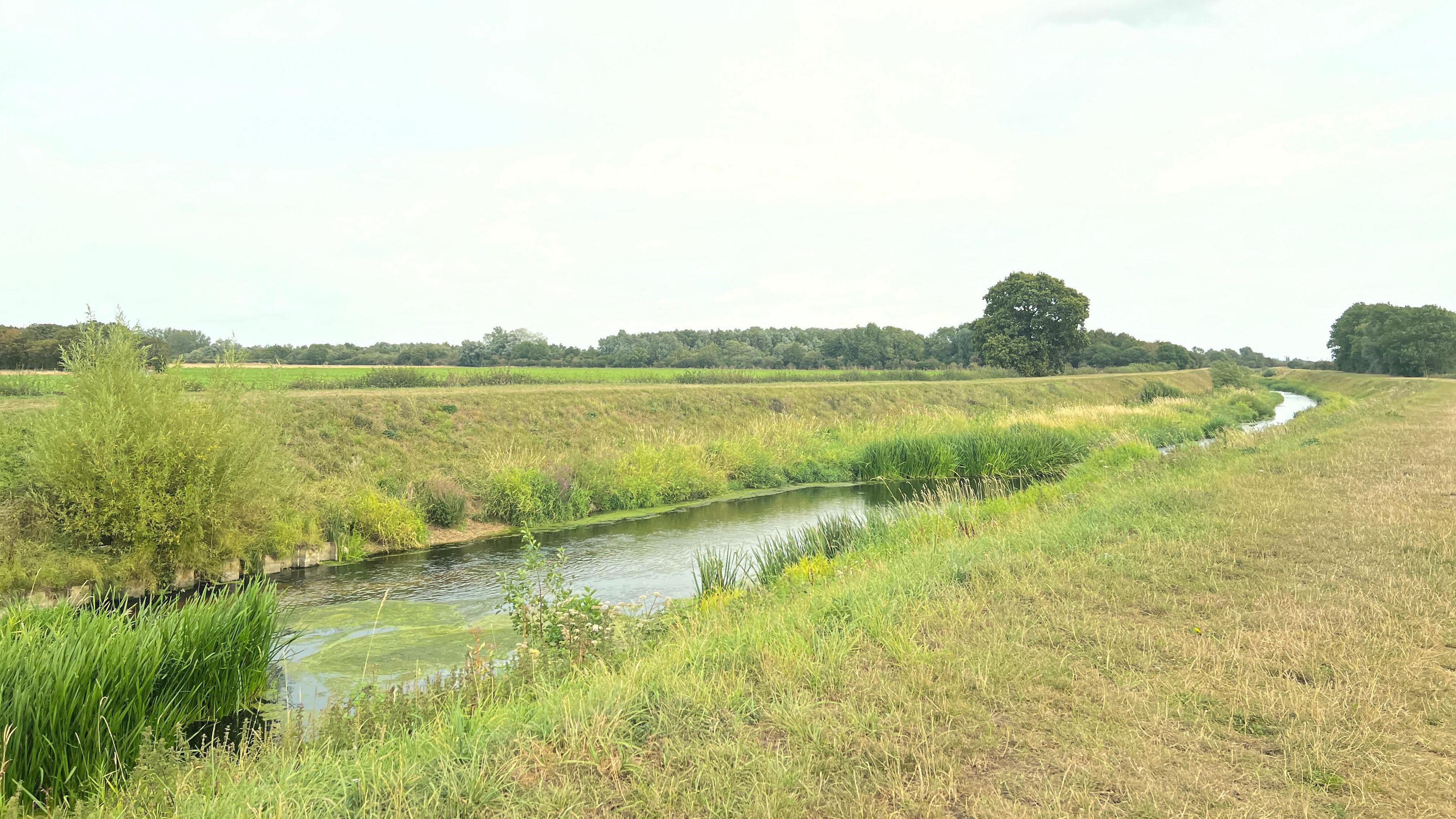
The area covered by John Clare Countryside stretches from Peterborough to Stamford in Lincolnshire
Michael Horne, a volunteer with the Langdyke Countryside Trust, said the team had been creating "pockets" to find homes for native wildlife.
"Nature is in a tough way at the moment, that's been going on for a long time now," he said.
"If we can find opportunities where we turn the clock back a little bit and improve things for nature and people's enjoyment that's really important."
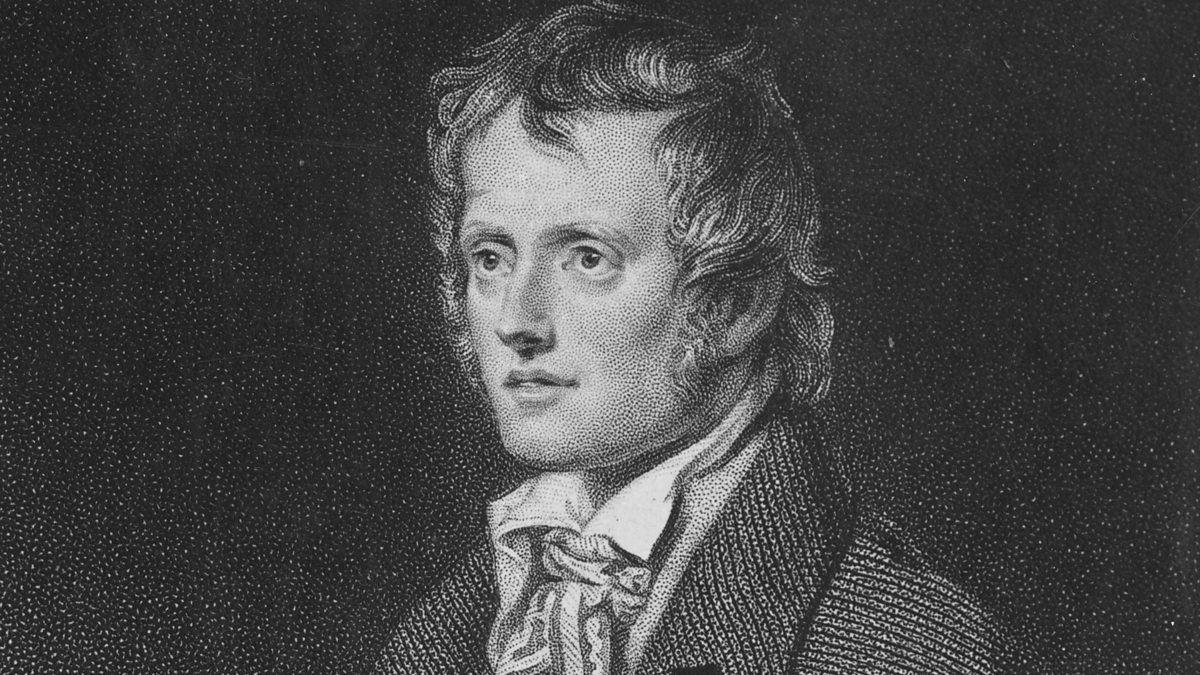
The 'Northamptonshire peasant poet', whose writing was as celebrated as his life was humble
Known as the peasant poet, John Clare was a fieldworker as a teenager and had his first poetry book published in 1820, called "Poets Descriptive of Rural Life and Scenery".
When Clare was 16, the Enclosure Act was passed for Helpston, which saw common land privatised and fenced off with trees cut down and locals barred from access.
Anyone who trespassed would be prosecuted and Clare believed the notion not only affected people but the local wildlife.
Talking to the BBC in 2017 Sir Jonathan Bate, former Provost of Worcester College at the University of Oxford, said Clare saw the landscape transformed after this act was enforced and feared his childhood was disappearing.
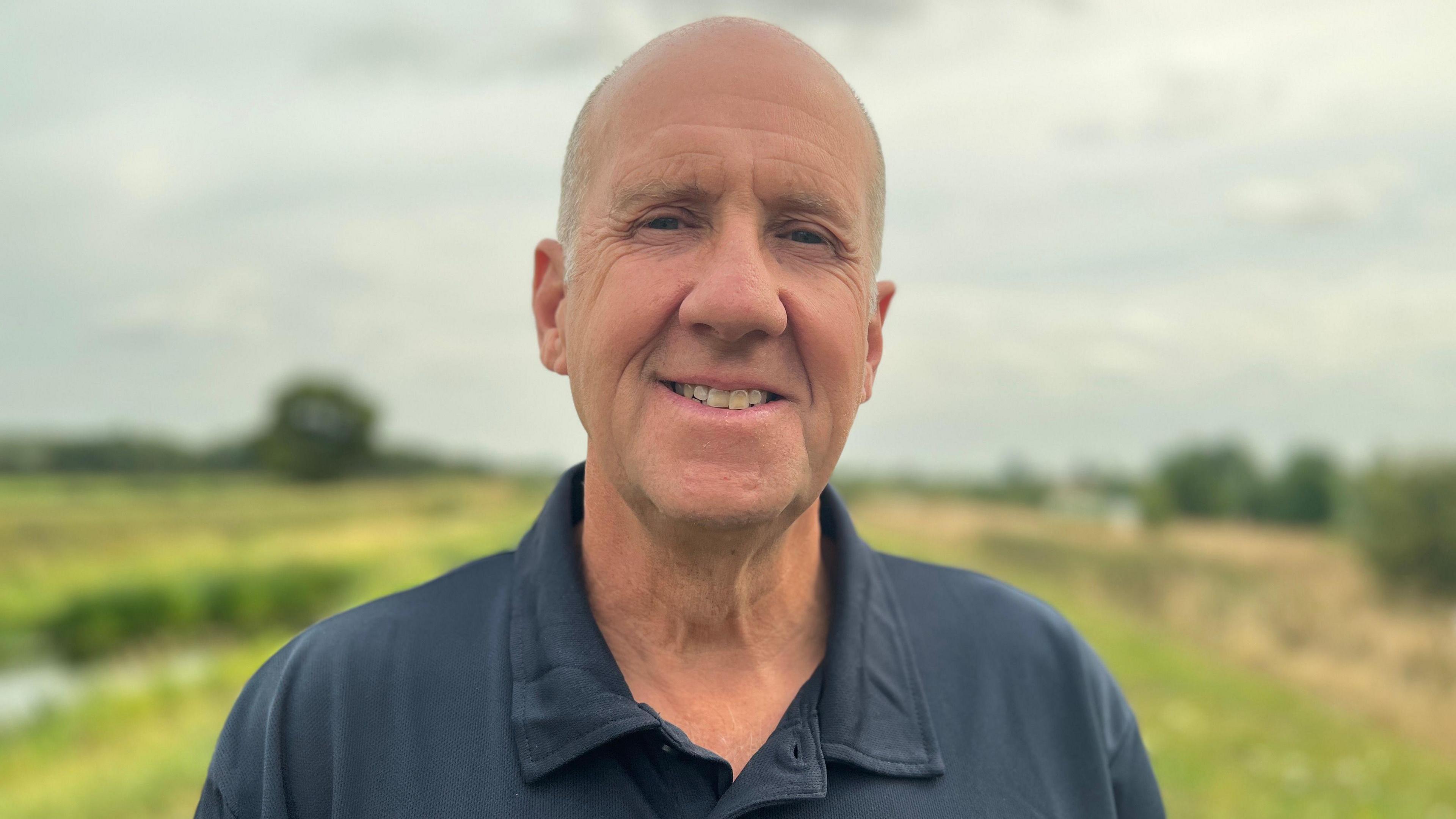
Richard Astle says the project is about seeing nature and farming "thrive" together
Mr Astle says he hopes the work will honour John Clare as the country's greatest nature poet.
"He wrote about a time of great change in the countryside, much as we are seeing at the moment," he said.
"It would be great to create some of John Clare's lost habitats in his honour and in his memory.
"He was very worried about the loss of people's access to the common land through enclosure. No longer could he walk across the countryside as he had before, and he saw nature in peril."
Mr Astle called on more volunteers to get involved and said Clare himself would have been "a happy patron of our work".
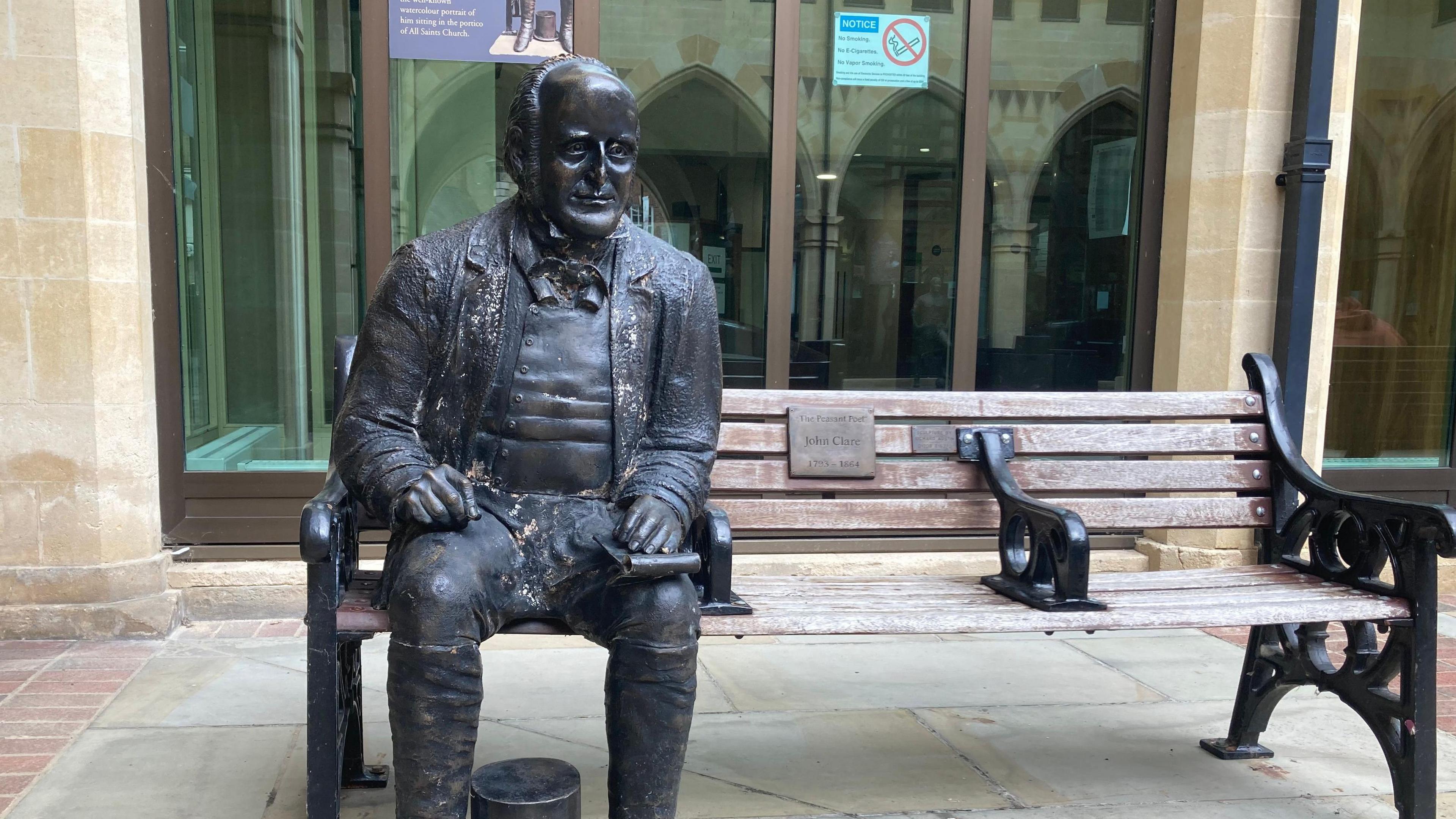
A statue of John Clare can be found in Northampton town centre. The poet grew up in Helpston, now in the county of Cambridgeshire
Get in touch
Do you have a story suggestion for the East of England?
Follow East of England news on X, external, Instagram, external and Facebook: BBC Beds, Herts & Bucks, external, BBC Cambridgeshire, external, BBC Essex, external, BBC Norfolk, external, BBC Northamptonshire, external or BBC Suffolk, external.
Related topics
- Published22 March 2024
